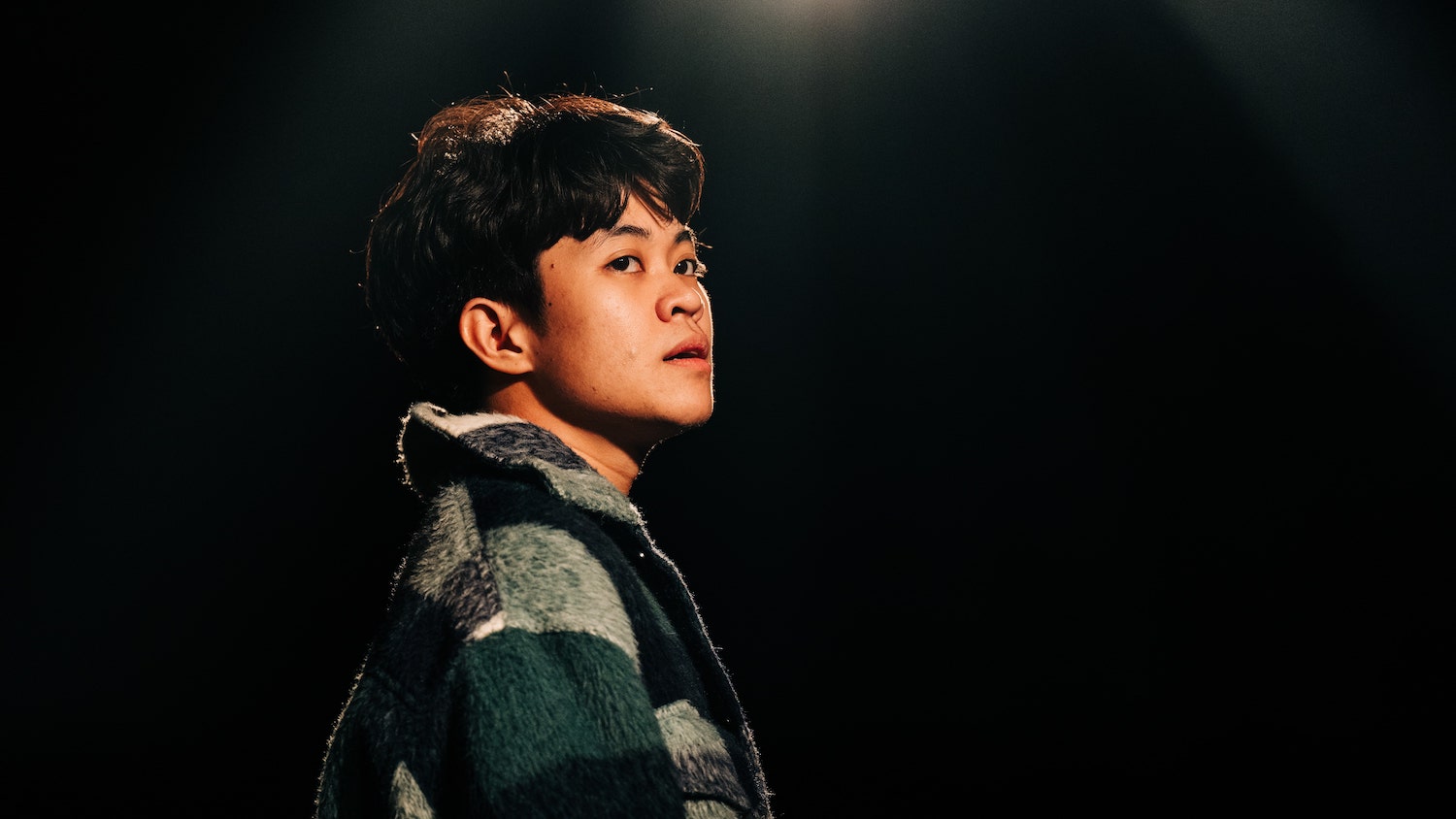
REVIEW: ‘Patintero sa Ayala Avenue’ finds profound feeling in teenage angst
The play’s spare design, its handling of humor and pathos, and Zoë de Ocampo’s tour de force performance add up to a captivating character study.
J. D. Salinger’s 1951 coming-of-age novel The Catcher in the Rye—a significant source of inspiration for C.A.S.T.’s (Company of Actors in Streamlined Theatre) production of Patintero sa Ayala Avenue—is at times criticized for mishandling its teenage protagonist’s immature, self-important mindset, to the point of appearing pointlessly misanthropic. Patintero could easily fall into this same trap of rebelling without a cause. But what playwright and director Rafael Jimenez gets right about the Holden Caulfield archetype is that all of it is a performance.
As we watch this nameless character spitefully wander Makati after being kicked out of high school right before Christmas, Jimenez’s deft handling of humor and pathos, the production’s spare design, and Zoë de Ocampo’s tour de force performance cut through the false bravado and into a much deeper vein. Here, the kids only act this way because the adults haven’t provided a compelling alternative for dealing with a world they’re forced to inherit.
Silence and Stimuli
This world that the Boy navigates is presented as nothing more than two long platforms intersecting as literal crossroads. The metaphor is clear, but this doesn’t confine the Boy from flitting across the stage and jumping casually from one curious interaction to the next. As he switches between addressing the audience and speaking to the many unseen characters he encounters, Rafa Sumilong’s lights and Nelsito Gomez’s sound design are essential in steering the story and characterizing the Boy’s life as made up of sharp stimuli coming from all around.
More importantly, Jimenez’s direction defines this wayward youth’s perspective as one of thunderous silence. Between every emotional outburst or surprisingly funny display of the Boy’s young male ignorance towards women, his schoolmates, and life’s many hypocrisies, Jimenez gives his protagonist much room to contemplate his own loneliness. As much as the character would want us to think that his silence only signifies boredom, before long you begin to read so much more into it. There’s fear, guilt, a desire for self-destruction, and the discomfort of trying to fit the stereotypically masculine culture he’s been socialized into. And Jimenez’s tonal control makes every crass joke fit right alongside every pained confession.
Why Change the World?
Likewise, Patintero’s script manages to fit lots of comedy into a generally bleak situation about running away or facing parental punishment—all while providing great insight into the disillusionment that many young people feel towards “changing the world.” In the Boy’s eyes, everything about his existence has already been decided for him, from arbitrary rules about haircuts and money to social customs for how to talk to girls and how to be a man. Jimenez successfully brings this point of view into a firmly local context that charges these unspoken rules with a deep history: the ever-present arcades of Timezone, the regurgitated romantic fantasies of mainstream Filipino cinema, the proliferation of foreign sex tourists in Poblacion.
Patintero does such a good job of filling in these details that when it has to make good on certain major plot threads—particularly one involving the Boy’s many messages to his brother Michael—its sudden turn to melodrama feels oddly unconvincing. This isn’t to say that the emotional core of this climactic moment comes from an insincere place. But what should feel like a dam finally breaking after accumulating so many cracks over the course of the show comes off as obligatory.
Captivating Performance

Teia Contreras as Nora and Zoë de Ocampo as Boy; Photo Credit: May Celeste
Thankfully, there’s far more to the play than this climax. And luckily, every moment is carried on the shoulders of Zoë de Ocampo, in a captivating performance that boasts impressive comic timing, painfully real angst, and uncompromising physical intensity. But while de Ocampo performs all of act one and most of act two practically as a monologue, Teia Contreras briefly shares the stage with them for approximately 20 minutes, and still manages to leave a stunning impression as the Boy’s baby sister, Nora. That Nora is the only “real” person we see with the Boy already speaks volumes, but the innocence in Contreras’ eyes and the immediate concern written across her face transform this peripheral character into a lifeline for the protagonist and for the show as a whole.
But even on their own, de Ocampo still commands absolute attention, with both the disarming, jovial attitude of a friend relating funny stories, and the anxious, twitchy energy of a person on the verge of a breakdown. More than anything, they’re able to make what could be an easy caricature of a Gen Z teenager into a study of somebody pushing and stretching against the mold of traditional masculinity. Every time the Boy boasts or swears or declares that he doesn’t really care, it becomes clear the Boy has only ever learned how to mask things with faux insincerity—and that de Ocampo has only gotten better at capturing difficult, contradictory characters with real authenticity.
Tickets: P550
Show Dates: June 29 – July 7 2024
Venue: The Mirror Studio, Makati City
Running Time: approximately 2 hours (including a 10-minute intermission)
Credits: Rafael Jimenez (Playwright, Director), Rafa Sumilong (Lighting Design), Nelsito Gomez (Sound Design), Sarah Facuri (Production and Graphic Design)
Cast: Zoë de Ocampo, Teia Contreras
Company: Company of Actors in Streamlined Theatre (C.A.S.T.)


Comments